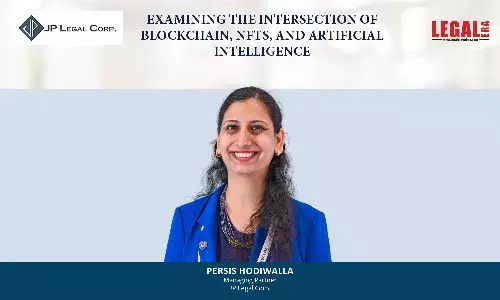When Did the Game Change?

WHEN DID THE GAME CHANGE? Today, we are at the cusp of an Online Gaming (Regulation) Bill, 2022 being tabled for approval… A growing younger population, higher disposable income, inexpensive internet data, increasing number of smartphone and tablet users can be some of the reasons for the boom in the gaming sector. As per a KPMG report, India is expected to become one of the world’s...
WHEN DID THE GAME CHANGE?
Today, we are at the cusp of an Online Gaming (Regulation) Bill, 2022 being tabled for approval…
A growing younger population, higher disposable income, inexpensive internet data, increasing number of smartphone and tablet users can be some of the reasons for the boom in the gaming sector. As per a KPMG report, India is expected to become one of the world’s leading markets in the gaming industry. Growing steadily for the last five years, it is expected to treble in value and reach USD 3.9 billion by 2025. The number of gamers is expected to cross 450 million by 2023, state EY and FICCI.
But let’s start from the era of board games, bulky video game machines going back to 1950s, handheld game devices of early 90’s, playbox station the much-hyped mid-1990s state of art gadget, transitioning to the 20th century online and mobile gaming and only unravelling as we watch.
As a lawyer, grappling with what is a “game of chance vs game of skill”, I belong to the generation that saw printed lottery tickets come and go, the legendary wave of ‘Mario’ and Mario cassettes and gaming sites (we use the terms “gaming” and “gambling” somewhat seamlessly) in and out of controversy regularly. A plethora of judgments on gaming/gambling and amendments made to the existing laws by different states at various points in time, not much moved in the traditional gaming sector.
In a parallel world, India’s Internet penetration was at 30% and it had over 560 million internet users, being the second-largest internet consumer with reasonable cost of access. When these two, i.e. the internet and gaming came together, data tells us that mobile users formed an overwhelming 85% of the gaming industry, followed by PC users at 11% and tablet users at 4%.
Bizarre and some amazing content was getting created and with it came all kinds of noise; concerns on reports of suicides resulting from financial losses suffered while playing online games, online financial frauds, and the potential effects of youngsters getting addicted to such games.
2017 saw “fantasy sports” enter the online gaming market in India scaling largely given the love of cricket this country has. Technology was at the core of this bridge between dreams and opportunities which was now shaping the Indian gaming industry. This new fantasy storm led to an association and self-regulation being loosely formed as the Federation of Indian Fantasy Sports” (FIFS) to protect consumer interest and formulate opportunities and administer the ground rules for its members offering Online Fantasy Sports Platforms (OFSP) such as Dream 11, MPL, Balle Baazi, My team 11 and Fancode among others.
But when did it all peak or start to peak? Must have been the 2020 “black swan” event for the gaming industry, Covid-19. The pandemic-induced lockdowns did see a spurt in the growth of online gaming in India and as per reports by September 2020, only months into the pandemic, 7.3 billion games had been installed in India.
Bizarre and some amazing content was getting created and with it came all kinds of noise; concerns on reports of suicides resulting from financial losses suffered while playing online games, online financial frauds, and the potential effects of youngsters getting addicted to such games.
There has also been significant public debate on whether the games conducted on online gaming platforms involve a predominant element of skill, or whether they solely comprise of activities that amount to betting or gambling. This distinction assumes significance, as activities in the nature of betting or gambling may solely be based on chance or luck, and may not involve a predominant element of skill. Litigated before various High Courts, where the legality of online fantasy sports leagues relating to cricket has been challenged, while High Courts have largely upheld the validity of such online fantasy sports leagues on the ground that they involve competitions based on skill, there is no conclusive decision which only made it discretionary.
The October 2021 act of the Karnataka government banning online gambling and games was a blow to this fast-growing sector, impacting investments, jobs, revenues and even taxes. In August 2022, an order by the government to Google and Apple to ban popular battle royal game Battlegrounds Mobile India (BGMI) only highlighted the need for a clear set of standards and framework to ensure fairness and uniformity to all stakeholders.
From ban to regulation, this industry has had its fair share of heartburn and in December 2022, it saw a “Animation, Visual Effects, Gaming and Comics” (AVGC) task force set up under the Ministry of Information and Broadcasting (MIB) to make recommendations for a gaming framework.
Today we are at the cusp of an Online Gaming (Regulation) Bill, 2022 being tabled for approval. The concern is while the intent behind regulating this industry at the national level is laudable, this Bill adopts the age old Indian legislative device, license raj, to achieve its aim.
A modern world needs a new perspective and breakaway from a one-size-fits-all approach rather than go down the data privacy law, perhaps, rethinking proactively and taking relevant industry view might be more appropriate.





